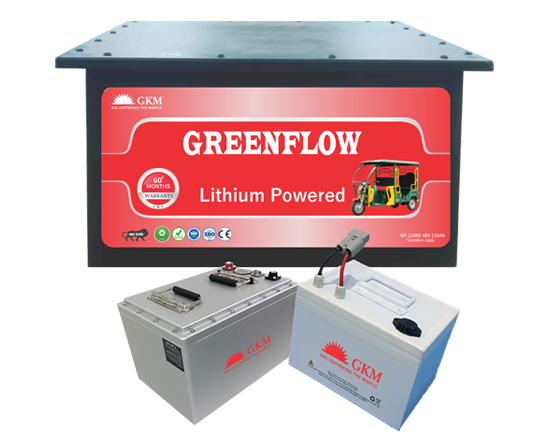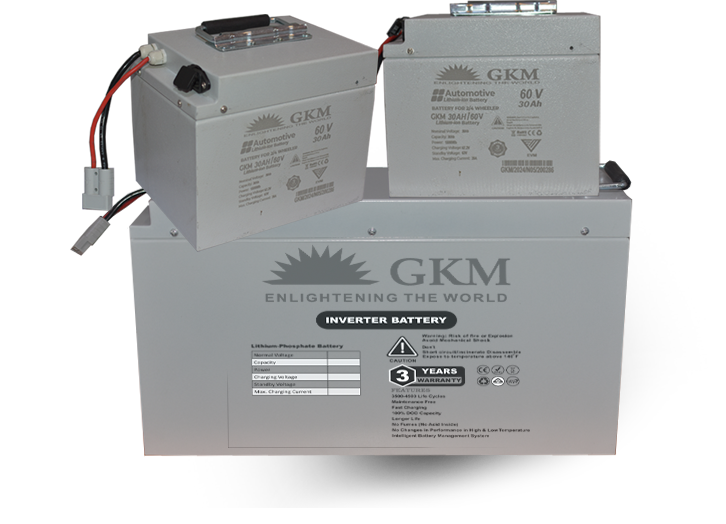LIthium Battery (GreenFlow)
Solar tubular batteries are commonly used in off-grid solar systems, where they store energy generated during the day for use during night time or when sunlight is not available. The tubular design of the positive plates enhances the battery's durability and performance in deep discharge cycles, which is common in solar energy storage systems. They are designed for deep cycle applications, meaning they can withstand frequent charging and discharging cycles without significant degradation. Solar tubular batteries often have a higher capacity compared to traditional lead-acid batteries, allowing them to store more energy per cycle.


